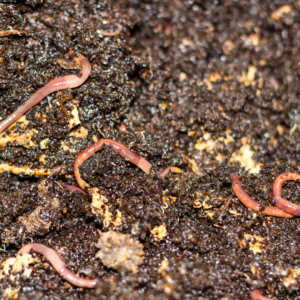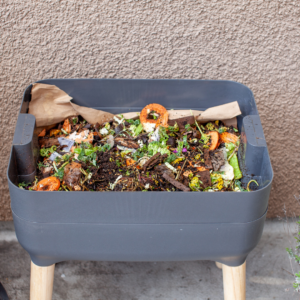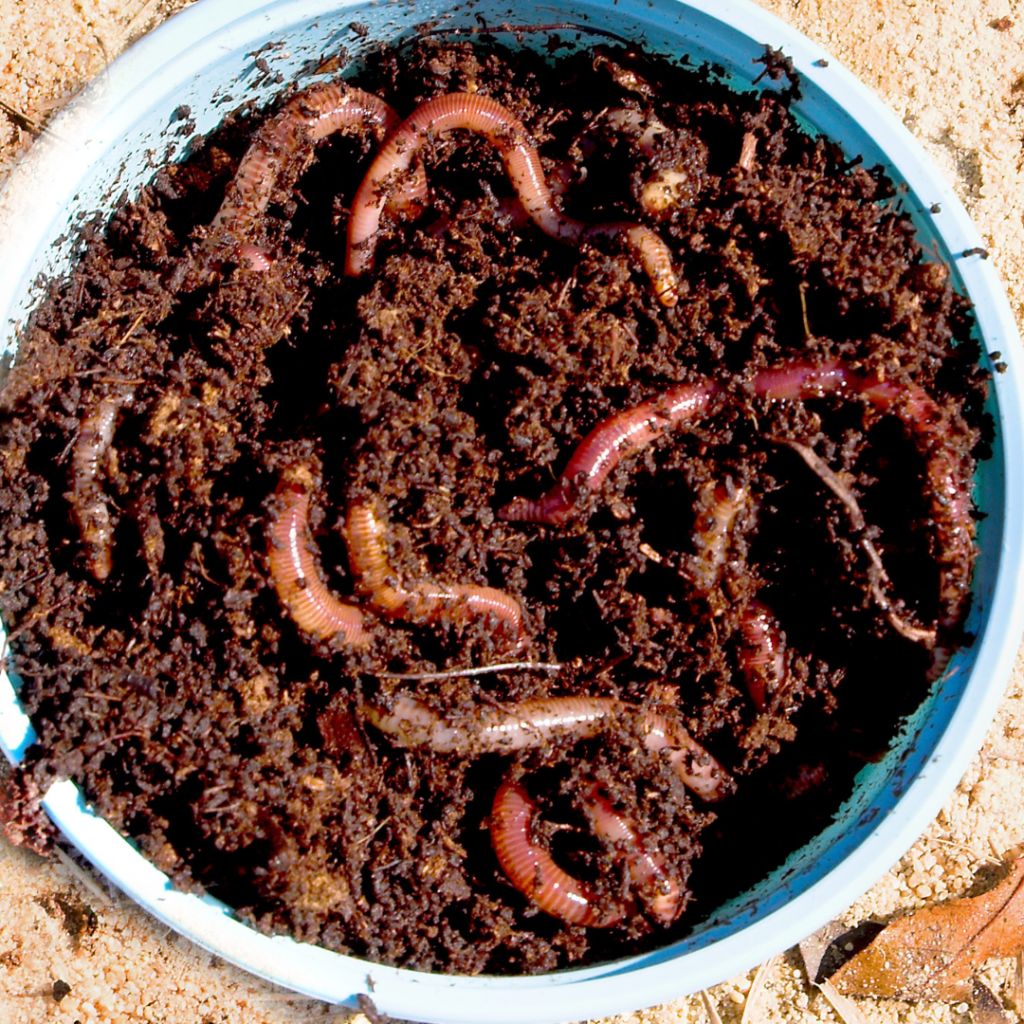I never had a green thumb, but then I discovered worm castings.
I’d always been interested in homesteading, but I didn’t know how to get started. Once I did, though, it was like a whole new world opened up for me.
I learned all about organic fertilizers soil amendments and composting techniques—but worm castings blew my mind.
This stuff is so concentrated that you can mix it into store-bought compost or just sprinkle it directly onto the ground to give your garden or potted plants a boost of nutrients. And once you get used to using it? You’ll be hooked!
What Are Worm Castings?
You’ve probably heard of worm castings, but do you know just how great they are for your indoor plants?
Worm castings are the result of worms digesting plant waste and turning it into a fine powder. This powder is then extruded as worm castings, which can be used to fertilize your plants. The best part about this process is that it’s completely natural no chemicals or pesticides involved!

You can read here more about this.
Disadvantages Of Worm Castings
If you live in a small space and don’t have a lot of land, worm castings may not be the best choice for you. Worm castings need to be made in a relatively large area, so if you don’t have enough space to dedicate to making them, it can be difficult to get enough to make it worth your while.
Additionally, worm castings take time and space to make—they can take up to two years before they are ready for use—so if you live in an urban environment where space is at a premium, they may not be the best option.
However, this factor is the only real disadvantage of worm castings. In every other way, they are the perfect fertilizer and soil amendment.
If you live in a region where temperatures can change dramatically from season to season, keep an eye on the health of your worms. If your composter becomes too wet or too dry, your worms will either die or escape. Either way, this leaves you with a compost system that no longer functions.
If you’re using a worm composter outdoors, it’s important to protect it from weather extremes. After all, worms are still living creatures and they need protection from rain, snow, and sun exposure.
You can also use a cover for your worm composter during the winter months when temperatures drop below freezing. This will keep them safe until spring arrives again!
What is the NPK of worm castings?
Worm castings’ benefits are not derived from their levels of NPK (Nitrogen, Phosphorus, Potassium). Their benefits are in the bacteria and microbes they contain. In fact, worm castings’ NPK count typically comes in around 1, 0.5, and 0.5. In other words, quite low!
So what’s all this fuss about? Well, it turns out that worms eat things like dead leaves and organic materials that have been broken down by bacteria in the soil. They digest these foods and then excrete them as worm castings—which is essentially compost made by worms.
What makes worm castings so special? It’s all in the microbes they contain! These microbes help plants grow by bringing nutrients up from deep in the soil and breaking them down into forms that plants can use more easily. That’s why worm castings make such great fertilizer: they contain lots of microorganisms that help make nutrients available to your plants!
How to Use Worm Castings
The Worm castings are a fantastic way to naturally improve your garden soil. Worm castings are high in nitrogen, which is essential for plant growth.
Worm castings can be used to amend the topsoil of any plant. Simply add roughly 1 square inch of worm castings to the top soil, evenly on all four sides, for every 2-3 inches of plant height. The nitrogen will naturally get to the plant through the roots when the plant is watered. There is no need to worry about over-application for mature plants (older than 6 weeks).
For more information about how you can use worm castings in your garden and what types are available, contact us today!
Where Can You Buy Worm Castings?
If you are wondering where you can buy a good quality of worm castings? We are happy to say that we know an online store where you can buy good quality worm castings. It’s affordable and since it’s an online store you will save more time and effort.
Uncle Jim’s Worm Farm is our trusted online shop. It’s a great place to purchase worm castings if you are looking for good quality. They sell not just worm casting but almost everything you need to make your plants healthy like compost worms, mealworms, compost, organic fertilizers, and organic pest control, you can also make worm farms with worm food and bedding, and many more.
Why Should I Start a Worm Bin?
Do you like the idea of having your own garden inside?
Do you want to grow healthy, organic produce in your home?

Worm bins are a great way to do that! They’re easy to set up and maintain, and they provide the perfect environment for worms to work their magic, turning food scraps into nutrient-rich soil. Here are some reasons why you might want to consider starting a worm bin:
-They’re easy to maintain. Worm bins require very little maintenance—just keep them moist and add new food every few days. You can feed them almost anything: vegetable scraps, fruit peels, eggshells, coffee grounds (if they’re raw), and even paper napkins or tissues if they’re made from recycled paper. Everything goes in there! Just make sure it’s not too wet or dry before adding it to your bin.
-They’re good for the environment. Worm bins are an excellent way to recycle waste materials while keeping them out of landfills where they would otherwise decompose without oxygen (and thus release methane gas). Plus, by growing your own plants instead of buying them at stores like Home Depot or Lowe’s, you’ll be reducing pollution caused by shipping products across the state.
Where (and How) to Buy Worms for Your Composting Bin
Uncle Jim’s Worm Farm is our trusted online shop. It’s a great place to purchase worm castings if you are looking for good quality. They sell not just worm casting but almost everything you need to make your plants healthy like compost worms, mealworms, compost, organic fertilizers, and organic pest control, you can also make worm farms with worm food and bedding, and many more.
Common Problems With Raising Compost Worms
Worm bin problems are common, but don’t worry—we’ve got you covered.
House flies in a worm bin:
Flies will only become a nuisance if there is something in the bin that they want to eat. Flies are attracted to moisture and rotting food, so make sure to keep your bin well-drained and clean out the castings (the poop) regularly. If you’re having trouble with flies, try adding some lemon juice to your bin.
Worms crawling up sides of bin/escaping worms:
If your worms are crawling up the sides of your bin and escaping, it means that your bedding is too wet or too dry. Try adding more soil or peat moss to hold more moisture inside the bedding. If your bedding is too dry, add water or dampen down the bedding with a spray bottle until it feels damp but not soaking wet.
Worm bin too wet:
If your worm farm is too wet, try adding more soil or peat moss to absorb excess moisture from below and keep it from rising into their living space above ground level where they live in their castings as well as below ground level where
Final Thoughts
Worm castings are a great way to boost your soil’s nutrient content. Not only do they help plants grow better, but they also make your garden more sustainable by reducing the need for fertilizer.
We hope this post has helped you learn more about worm castings and how they can benefit your garden! We’d love to hear from you: what are some other ways you’ve used worm castings?
